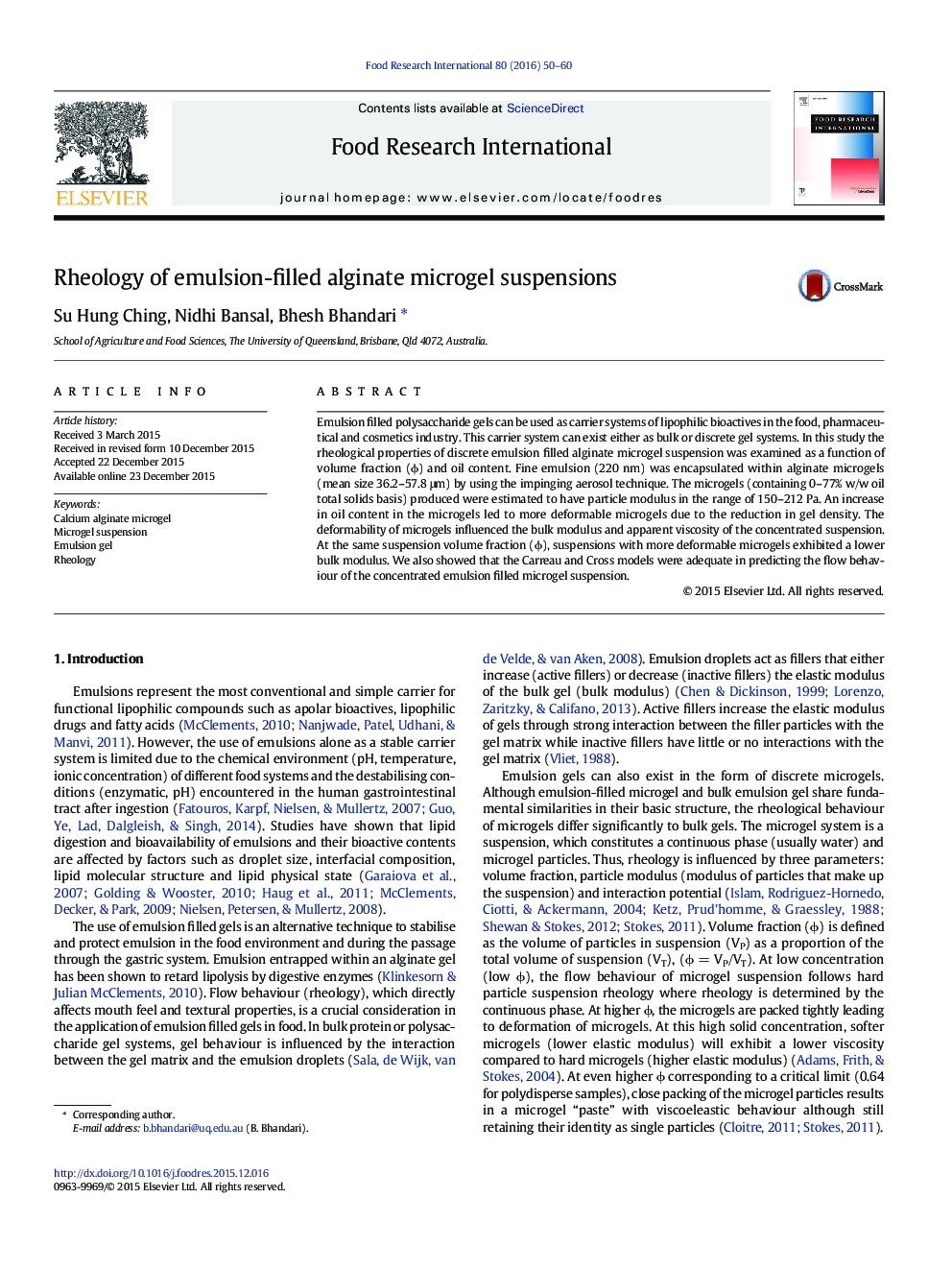| Article ID | Journal | Published Year | Pages | File Type |
|---|---|---|---|---|
| 4561230 | Food Research International | 2016 | 11 Pages |
•Emulsion (0–77% oil) filled alginate microgel suspension rheology was investigated.•Microgel volume fraction and oil content govern suspension rheology.•Microgels deformability increased with microgel oil content.•Suspension bulk modulus and viscosity was influenced by microgel deformability.
Emulsion filled polysaccharide gels can be used as carrier systems of lipophilic bioactives in the food, pharmaceutical and cosmetics industry. This carrier system can exist either as bulk or discrete gel systems. In this study the rheological properties of discrete emulsion filled alginate microgel suspension was examined as a function of volume fraction (ϕ) and oil content. Fine emulsion (220 nm) was encapsulated within alginate microgels (mean size 36.2–57.8 μm) by using the impinging aerosol technique. The microgels (containing 0–77% w/w oil total solids basis) produced were estimated to have particle modulus in the range of 150–212 Pa. An increase in oil content in the microgels led to more deformable microgels due to the reduction in gel density. The deformability of microgels influenced the bulk modulus and apparent viscosity of the concentrated suspension. At the same suspension volume fraction (ϕ), suspensions with more deformable microgels exhibited a lower bulk modulus. We also showed that the Carreau and Cross models were adequate in predicting the flow behaviour of the concentrated emulsion filled microgel suspension.
